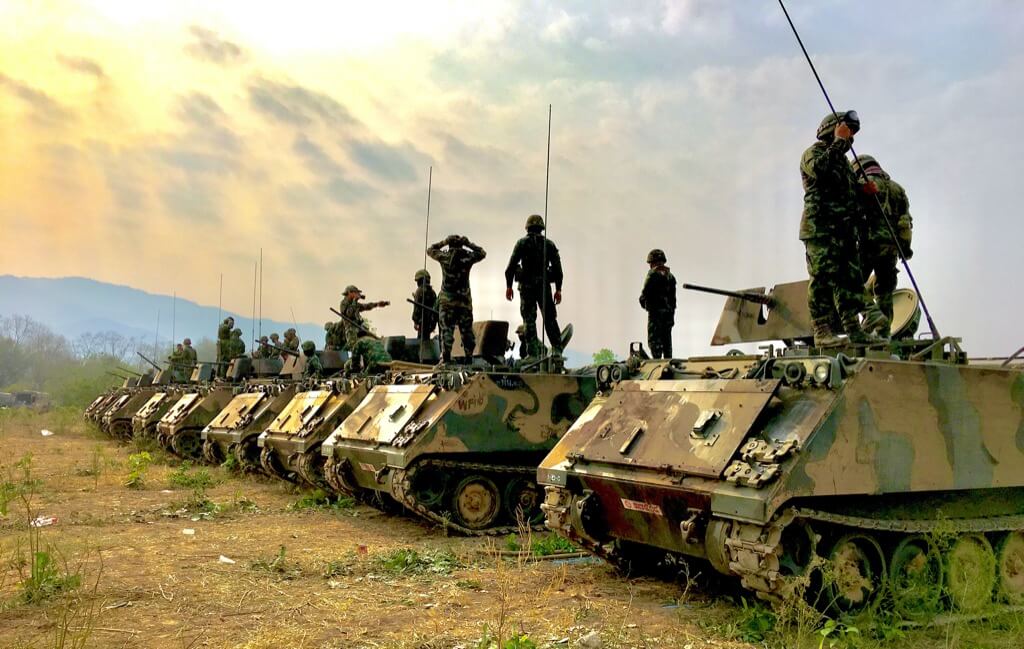The South African government has issued a stern warning to SA citizens in the IDF. This cautionary statement comes amidst escalating tensions and violence in the Gaza region. The government’s position is clear: participation in these conflicts not only raises ethical and legal concerns but also places individuals in direct opposition to South Africa’s stance on international conflicts.
In a troubling development within the Gaza Strip, the United Nations reports that over 423,000 Palestinians have faced forcible displacement from their homes. This large-scale displacement highlights the profound and often overlooked human cost of the ongoing conflict in the region, painting a stark picture of the challenges faced by countless families and individuals caught in the crossfire.
Recently, President Cyril Ramaphosa of South Africa vehemently condemned the violence in the Palestinian territories, labeling it as ‘genocide.’ In line with this strong stance, the South African government has issued a clear warning: any of its nationals found participating in the conflict on behalf of Israel in Gaza could face legal repercussions upon their return. This declaration is a significant move, underscoring the government’s commitment to its principles regarding international conflicts and human rights.
The South African government has taken a firm stance on this issue, stating unequivocally that participation in the conflict could lead to prosecution for international crimes and legal violations. This stern warning reflects the seriousness with which the government views such actions. While the exact number of South African nationals who have joined the IDF remains unspecified, the implication is clear: involvement in the conflict carries significant legal risks.
According to the South African Ministry, any citizen wishing to engage in military activities in foreign nations, including Israel, must first obtain explicit authorization from the government. This requirement underscores South Africa’s stance on international warfare: not only does it disapprove of its citizens participating in foreign conflicts, but it also warns that naturalized citizens might face severe consequences, such as the revocation of their citizenship, for involvement without prior approval. This policy reflects a broader commitment to peace and a careful approach to international military involvement.
The recent escalation in the conflict traces back to an attack launched by Hamas, the governing authority in the Gaza Strip, against Israel on October 7. This incident marked a significant intensification in the long-standing hostilities between the two sides. According to data from Israeli sources and calculations by AFP, the conflict has resulted in approximately 1,140 deaths, predominantly among civilians. Additionally, there have been reports of around 250 kidnappings, further exacerbating the humanitarian crisis in the region.
Impact of Israeli Military Response in Gaza
The Gaza health ministry reports a devastating toll as a result of Israel’s military response: over 19,400 Palestinian casualties, with a significant number of them being women and children. The conflict has also led to widespread destruction, with many areas in Gaza being reduced to rubble. These figures highlight the severe humanitarian impact of the conflict, emphasizing the urgent need for a resolution that safeguards the lives and well-being of civilians.
The African National Congress (ANC), South Africa’s ruling party, has long seen a parallel between the struggles of the Palestinian people and its historical battle against apartheid. This perspective has shaped South Africa’s vocal advocacy for the Palestinian cause. In a significant diplomatic move, South Africa withdrew all of its diplomats from Israel, a direct response to the intense criticism levied against Israel’s harsh military actions following Hamas strikes. This action underscores the depth of South Africa’s commitment to supporting what it perceives as a struggle for human rights and justice.
In a powerful joint statement with pro-Palestinian groups in Johannesburg, President Cyril Ramaphosa vehemently condemned what he termed the ‘genocidal onslaught and slaughter of the Palestinian people.’ This statement, made during a gathering on a recent Monday, not only amplifies the voices of those advocating for Palestinian rights but also places South Africa in a significant position on the global stage.
Legal Implications of Joining IDF
South Africans who consider joining the IDF without prior government authorization are facing significant legal risks under national laws. This includes potential prosecution for participating in military actions that have not been sanctioned by the South African government. The legal framework in South Africa is designed to regulate its citizens’ involvement in foreign military operations, ensuring that such participation aligns with the country’s laws and international obligations. This regulation is particularly stringent for naturalized citizens, who may face additional consequences, such as the loss of their South African citizenship if found in violation of these laws.
It’s Impact on Naturalized Citizens
The South African government’s emphasis on the potential legal repercussions for unauthorized participation in foreign military conflicts is especially pertinent for naturalized citizens. This group may face more severe consequences, such as the revocation of their South African citizenship, in addition to the general legal risks of prosecution. This policy underscores the government’s effort to ensure that all citizens, including those who have acquired citizenship through naturalization, adhere to the country’s laws and respect its stance on international military engagements.
These points elaborate on the South African government’s warning to its citizens regarding involvement in the conflict in Gaza and the legal framework that underpins this advisory. The focus on upholding international law and the specific risks for naturalized citizens are key aspects of South Africa’s approach to managing its citizens’ participation in foreign military conflicts.
BRICS Summit and Call for Truce in Gaza
During the BRICS summit, which includes Brazil, Russia, India, China, and South Africa, the South African government played a key role in advocating for an immediate truce in Gaza. This initiative, supported by the other BRICS nations, underscores the urgent need for a cessation of hostilities and the protection of civilians caught in the conflict. The call for a truce reflects the collective concern of these emerging economies for the humanitarian situation in Gaza and their joint commitment to peace and stability in the region. The BRICS summit served as a platform for South Africa to vocalize its position on the conflict and to collaborate with other nations in seeking a resolution.
In a decisive move to uphold international law and national policy, the South African government has communicated the legal risks faced by its citizens who join the Israeli Defense Forces without formal approval. This measure reflects a broader commitment to global peace and respect for the sovereignty of nations. It serves as a reminder of the responsibility that individuals hold when engaging in foreign conflicts, especially in contexts where international law and human rights are at the forefront.




